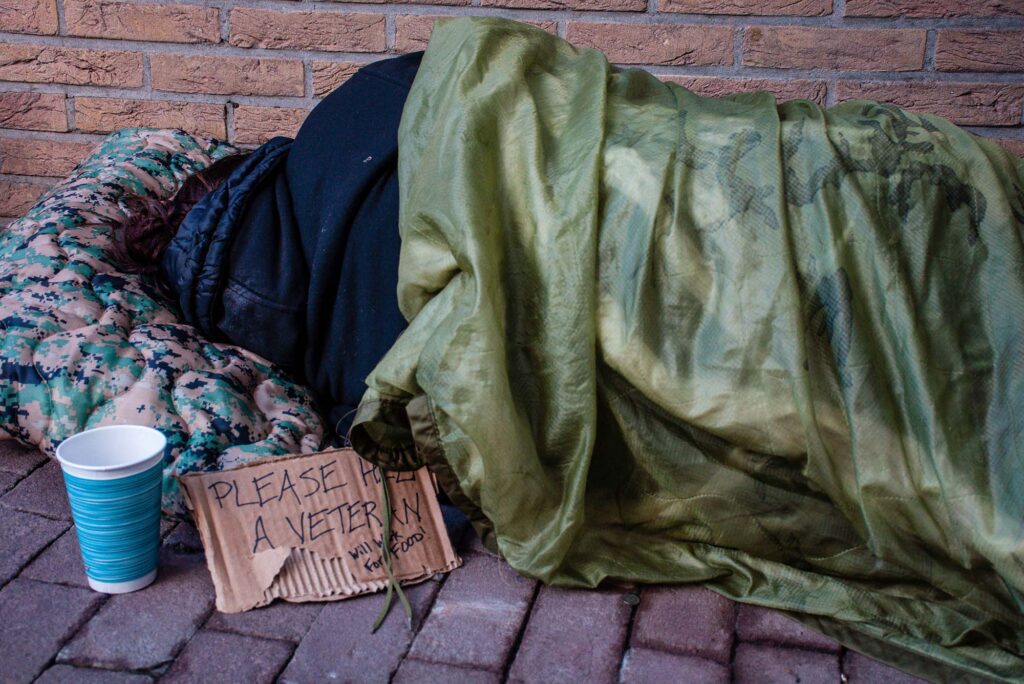The signs dot highway bridges and town halls, celebrating the return of armed services personnel from dangerous overseas missions. “Welcome Home,” they proudly, joyously, declare. But for many veterans—carrying the visible and invisible scars of battle, more vulnerable to suicide, physical and mental illness, and substance use disorders—the message rings hollow: they might not even have a stable home to return to. Ex-service members have long been at greater risk of homelessness than the general population.
Thomas Byrne, a Boston University School of Social Work associate professor, is an expert on homelessness, and among the researchers studying why veterans are more likely to land in shelters—and how to better help them. He says that a lack of affordable housing can make it especially tough for former service members to find a stable home, and that those who want to help them should advocate for more economical options.
Byrne has studied housing insecurity in rural areas, the effectiveness of Department of Veterans Affairs (VA) housing programs, and the community and structural drivers of homelessness, such as income inequality and housing affordability. His latest project is a major assessment of Supportive Services for Veteran Families, a program that provides grants to community organizations helping those at high risk of homelessness. One focus of the research is an initiative giving veterans flexible temporary financial assistance that they can use on anything from security deposits to utility bills.
“We’ve found it’s associated with better housing and health outcomes,” says Byrne, who is also an investigator at the VA’s National Center on Homelessness among Veterans and with the Center for Healthcare Organization & Implementation Research at the VA Bedford Healthcare System. “We’re also nearly there on a study that’s comparing participation in this program to a group of veterans who don’t get it, so we can as rigorously as possible estimate its impact.”
Byrne first became involved with the VA as a graduate researcher—but the work has taken on additional meaning in recent years.
“I have members of my immediate family who are on active duty,” says Byrne, “including one of my sisters and brother-in-law. I serendipitously became involved with the VA, but it also has a personal salience for me.”
The Brink spoke with Byrne about why veterans might be at greater risk of homelessness, the stigma faced by those dealing with housing insecurity, and what we can all do to help.

